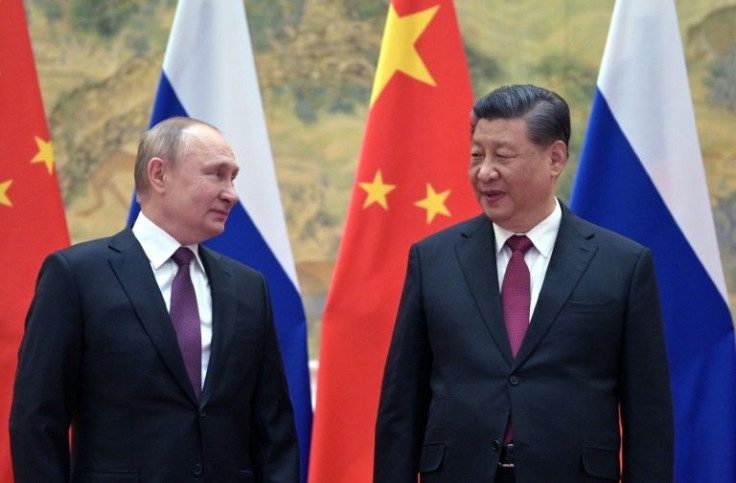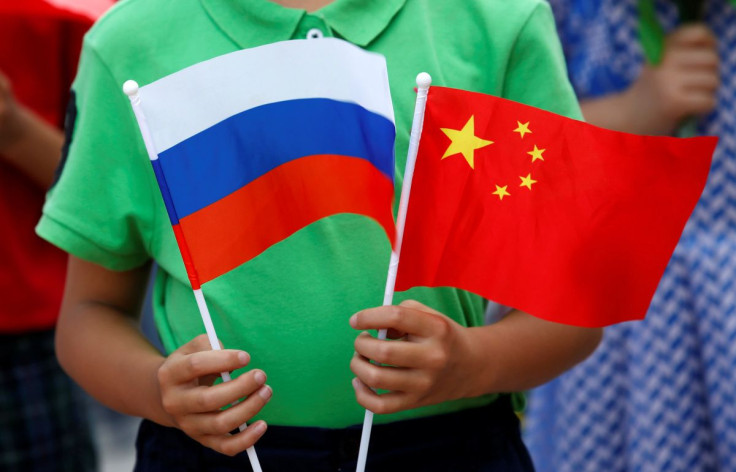China's Xi Jinping To Visit Russia's Putin To Promote Peace In Ukraine, Avoid Nuclear Weapons Use

KEY POINTS
- Chinese leader Xi Jinping is expected to push for multiparty peace talks and diffuse nuclear weapons use
- Xi is likely to visit Russia during the country's celebration of its World War II victory over Germany
- Xi's Moscow visit will likely be discussed by China's top diplomat, who arrived in Moscow Tuesday
Chinese President Xi Jinping is set to visit Moscow, Russia, in the coming months to meet with Russian President Vladimir Putin, as the Chinese leader aims to promote peace talks to end the conflict in Ukraine.
Unnamed individuals familiar with the plan told the Wall Street Journal that Xi's upcoming trip aims to bolster Beijing's push for multiparty talks on peace in Ukraine and reiterate its calls that nuclear weapons not be used in the war.
The report noted that the arrangements for the Chinese president's Moscow visit are still at an early stage but that Xi could visit the country in April or in early May, during Russia's celebration of its World War II victory over Nazi Germany.
Last month, Russian state-run news outlet TASS reported that Putin invited Xi to make a state visit to Russia in the spring. The Russian Foreign Ministry called Xi's Moscow trip the key event in relations between Russia and China this year.
China's top diplomat Wang Yi, who arrived in Moscow Tuesday, will likely discuss Xi's upcoming trip while he is in Russia, WSJ reported, citing people familiar with the summit planning.
Wang, whose visit to Moscow capped off his eight-day Europe tour, was also expected to present a Chinese proposal for a political settlement of the Ukraine conflict as well as discuss bilateral issues, an unnamed diplomatic source told Reuters.
China's focus on Russia comes as it grapples with the United States' accusation that it intends to provide lethal support to its closest ally amid Russia's invasion of Ukraine.
U.S. Secretary of State Antony Blinken said in a TV interview that U.S. intelligence uncovered information that China was actively considering sending weapons and ammunition to Russia. Blinken also said that China had already sent non-lethal assistance to Russia through its private Chinese companies.
But according to Josep Borrell, the European Union's high representative for foreign affairs and security policy, Wang told him during their meeting that China doesn't plan to send weapons to Russia.
"He told me that they're not going to do it, that they don't plan to do it," Borrell said.
The U.S. and E.U. warned China that it will face consequences if it armed Russia.
The Chinese Foreign Ministry denied such claims and urged the U.S. to "alleviate the situation" and avoid "spreading false information."
In the weeks before the conflict began in Ukraine, Russia and China declared a "no-limits" partnership that rattled Western countries.
Beijing refused to condemn Russia when it began attacking Ukraine on Feb. 24 last year and also refused to call it an "invasion" in line with the Kremlin's messaging strategy.
China has also provided the Russian economy a lifeline by purchasing its oil despite Western-imposed sanctions. Russian exports to China increased by 43% to $114 billion in 2022, according to the data obtained by BBC News from the Observatory of Economic Complexity.
Chinese exports to Russia grew after the invasion and stood at $76 billion.
But despite the deepening cooperation between the two countries, China rebuked Russia for floating the possibility of using nuclear weapons on the Ukrainian battlefield.

© Copyright IBTimes 2024. All rights reserved.





















